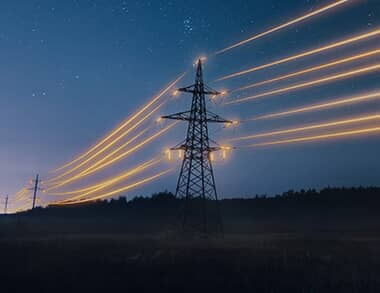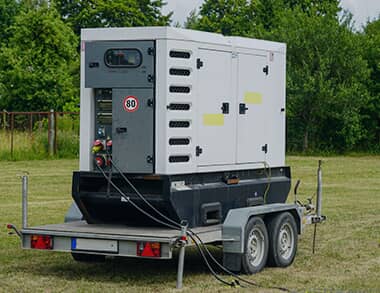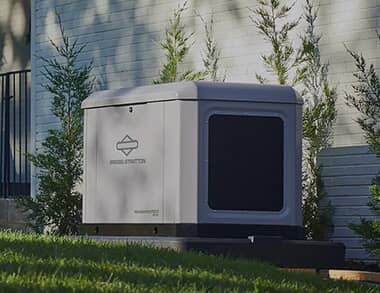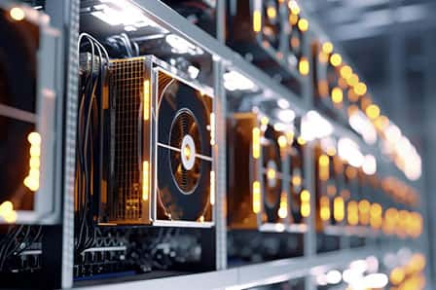Know the Parts That Make Your Generator Work

Turn it on, and the electricity starts to flow. Turn it off, and it stops. For the most part, that's all your personnel needs to know about how the different types of standby generators in the workplace operate. However, spending some time educating your personnel about diesel power generation can help technicians locate problems quickly and efficiently. To that end, the following are the systems and components everyone on the worksite should have a basic understanding of what they are and what they do.
This critical component regulates the voltage output of the genset. Without it, voltage spikes and valleys could cause damage to electrical equipment and disrupt the flow of work. Signs the regulator is malfunctioning include dimming/flickering gauges, erratic engine function, corrosion on the battery, malfunctioning instrument cluster, and equipment burnout.
The cooling system is easy to understand; it keeps the generator from overheating. It does this by passing coolant over a heat exchanger outside of the generator. Signs the cooling system needs to be serviced include weak/soft spots on hoses, leaks around gaskets or drain cocks, as well as leaks around the cylinders, water manifold, or water pump.
The lubrication system on a genset is responsible for making sure the camshaft, connecting rod, gear train, pistons, and other systems are free of friction and move freely during operation. There are many components within the lubrication system, including the oil pan, oil pump cooler, injection valve, pressure regulator, and safety valve. Common signs of lubrication system faults and failure include excessive vibration, increased smoke emissions, and knocking/banging noises.
The battery on a diesel engine is critical because it's what kicks the mobile generator into action. If the battery doesn't charge, the diesel generator won't start. Signs the battery is failing include clicking sounds on startup, slow crank, corrosion around battery terminals, battery overheating, and battery leaks.
Whether you have one or multiple control panels, it's essential that they function properly at all times. Not only do they provide critical information about genset function, but the control panel also governs system operation. If the control panel is damaged or malfunctioning, it's an accident waiting to happen. Blank displays, "wonky" readings, erratic gauges, sparks, and ozone smells are signs that a short or another type of damage is present and requires immediate repair.
The fuel system is something that everyone living in the era of the internal combustion engine understands. Most people understand the role of the fuel pump, tanks, etc. Rust, wet spots, "weeping," and poor engine function are all signs that the fuel tanks and fuel system need maintenance.
The team at Gen-Tech Power Generation Specialists has many resources available so that your team can lean about the types of standby generators and their operation. We invite you to contact us at (800) 625-8324 to speak with our EGSA certified technicians to learn more about the industry-specific training programs we recommend for your personnel.
Voltage Regulator
This critical component regulates the voltage output of the genset. Without it, voltage spikes and valleys could cause damage to electrical equipment and disrupt the flow of work. Signs the regulator is malfunctioning include dimming/flickering gauges, erratic engine function, corrosion on the battery, malfunctioning instrument cluster, and equipment burnout.
Cooling System
The cooling system is easy to understand; it keeps the generator from overheating. It does this by passing coolant over a heat exchanger outside of the generator. Signs the cooling system needs to be serviced include weak/soft spots on hoses, leaks around gaskets or drain cocks, as well as leaks around the cylinders, water manifold, or water pump.
Lubrication System
The lubrication system on a genset is responsible for making sure the camshaft, connecting rod, gear train, pistons, and other systems are free of friction and move freely during operation. There are many components within the lubrication system, including the oil pan, oil pump cooler, injection valve, pressure regulator, and safety valve. Common signs of lubrication system faults and failure include excessive vibration, increased smoke emissions, and knocking/banging noises.
Battery
The battery on a diesel engine is critical because it's what kicks the mobile generator into action. If the battery doesn't charge, the diesel generator won't start. Signs the battery is failing include clicking sounds on startup, slow crank, corrosion around battery terminals, battery overheating, and battery leaks.
Control Panels
Whether you have one or multiple control panels, it's essential that they function properly at all times. Not only do they provide critical information about genset function, but the control panel also governs system operation. If the control panel is damaged or malfunctioning, it's an accident waiting to happen. Blank displays, "wonky" readings, erratic gauges, sparks, and ozone smells are signs that a short or another type of damage is present and requires immediate repair.
Fuel System
The fuel system is something that everyone living in the era of the internal combustion engine understands. Most people understand the role of the fuel pump, tanks, etc. Rust, wet spots, "weeping," and poor engine function are all signs that the fuel tanks and fuel system need maintenance.
The team at Gen-Tech Power Generation Specialists has many resources available so that your team can lean about the types of standby generators and their operation. We invite you to contact us at (800) 625-8324 to speak with our EGSA certified technicians to learn more about the industry-specific training programs we recommend for your personnel.
Topics:
From Insights to Power: Let’s Talk Solutions
Whether you need emergency power, maintenance, or expert guidance on your generator system, Gen-Tech has you covered. Our experienced team provides industry-leading service to keep your power running when it matters most. Call (800) 625-8324 to discuss your power generation needs today!
Contact Us













